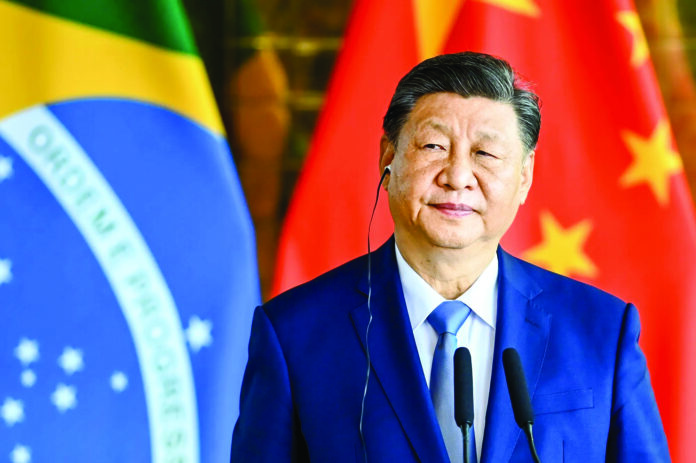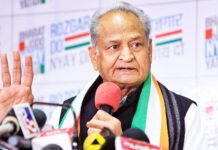In several organizations, the CCP punches well above its weight and well beyond what China’s shareholding and voting power should otherwise dictate.
WASHINGTGON, DC: The Chinese Communist Party (CCP) is masterful at manipulating the existing international system and its multilateral organizations to gain maximum benefit for China. This is apparent in its creation of the Asian Infrastructure Investment Bank and New Development Bank (the world’s two newest multilateral development banks, both based in China, which were specifically designed to give China a soft power vehicle for flexing its muscles in development finance) and in its oversized influence in organizations such as the United Nations, World Health Organization, and World Trade Organization, among others. In these organizations, the CCP punches well above its weight and well beyond what China’s shareholding and voting power should otherwise dictate.
In so doing, the Chinese government wants to appear to be playing the game by well understood and widely accepted rules of engagement while redefining boundaries of the game by either tweaking the system to its advantage or taking two steps forward and one step back before anyone even realizes the operational boundaries have changed. China’s playbook is to stretch the boundaries of acceptable behavior to its limits and appear to be within the theoretical confines of existing international rule of law and world order. By stepping past that line and retrenching, then doing the same again and again, it succeeds in establishing a new normal that has been defined by China.
Yet, many multilateral institutions are not accustomed to reacting in a meaningful way to the antics of state actors, or to punishing them for getting out of line. And many countries lack the political will to challenge Beijing or do what should be done in terms of formally sanctioning China and/or stripping its membership in these organizations as a result of Beijing’s behavior. The CCP will have brought such action, if it were ever to occur, upon itself as a result of its own actions, but the Party relies on the relationships it has established with governments all over the world to prevent such actions from ever occurring. As Beijing’s soft power continues to expand, the likelihood that it will ever be meaningfully challenged from countries other than the US, EU, and their strongest and most reliable allies, becomes more and more distant a prospect.
As has been the case with unfortunate frequency in the past three decades, the US and some Western governments have been sleeping while the Chinese government has been busy running circles around them. Part of the reason for this is the Chinese government’s ability to maintain continuity while embracing and surgically implementing its many long-term plans. By contrast, many Western nations have difficulty doing the same for a variety of reasons, many related to the need to have democratic elections, the resulting changes in government, and the absence of policy continuity. Knowing this, the CCP must believe that all it has to do is continue what it has been doing in order to ultimately gain supremacy over the West.
Western nations must find a way to do the same—an order which has proven, and will undoubtedly continue to prove, rather difficult to achieve. Their collective strategy and priorities in the international arena must be clearly articulated and implemented, coordinating policy among themselves and allocating the resources necessary to get the job done. While Trump is in power, this will need to be done without the US, but this is a golden opportunity for European nations to step up to the plate and take the lead.
And Western governments should find a way to reassume leadership and bolster their influence in multilateral organizations. Removing the plethora of regulatory, governance, and operational gaps and inconsistencies that pervade the multilateral arena can prevent China from continuing to manipulate the system with such ease. Clear performance metrics should be established and enforced to ensure that merit, rather than politics and nepotism, govern how these organizations function.
The West cannot afford to allow the Chinese government to continue to game the multilateral system to its benefit. Strong unity and resolve are required in order to stop the Chinese juggernaut. My hope is that these ingredients will not be in short supply in the coming years, because the Chinese government will not stop in its effort to create an alternative world order and will use increasingly sophisticated methods to do so.
If the Chinese government is to be encouraged to modify the manner in which it engages with the rest of the world, it is up to the world’s nations to enhance the manner in which they challenge Beijing, for the CCP is unlikely to become incentivized to do so without an abundance of externally-derived inspiration. Any leveling of the playing field will have only limited appeal, impact a small percentage of the world’s countries, or be likely to endure for a limited period of time before Beijing finds other ways to create yet another uneven playing field somewhere in the global economic and political system.
Western nations—and those in agreement with the West’s frame of reference—should join hands to take collective action to help ensure that Beijing adheres to the letter and spirit of the existing international law, order, norms and standards that have served the world so well in the Post-War era. China should not be allowed to thwart the law, create its own set of rules, or avoid sanction when it acts in a manner contrary to broadly established and accepted norms of behavior. Countries (and organizations) should strenuously object each and every time Beijing acts in a surreptitious, illegal or outrageous manner. In the absence of such collective and sustained action, the CCP will continue to utilize any tactic it can get away with to meet its nefarious objectives.
* Daniel Wagner is CEO of Country Risk Solutions and author of the newly published book Tales from Inside: Essays on Zero-COVID, the AIIB, and China’s Influence in Multilateral Organizations.








